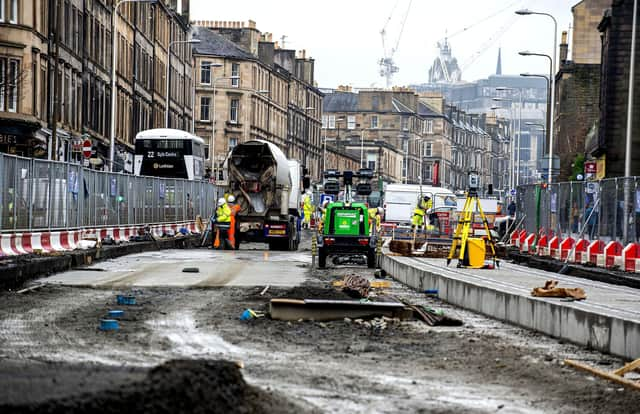Buyers can pay a heavy price for lack of diligence - David Alexander


Take a £99 jacket of the type that’s regularly available for sale in Marks & Spencer or Next. For every person who buys on a whim there is someone who will try on the product, take it off, go and have a think over a coffee, come back, try it on again – and then go home and think about it some more.
If only people were so pernickety when making a decision to buy a house.
Advertisement
Hide AdAdvertisement
Hide AdIt’s strange but true that some of those who agonise over whether or not to buy an item of clothing may be just as likely to throw caution to the wind with the most significant purchase of their lives.


I was reminded of this last month when reading about a couple in Coleshill, near Birmingham, who complained they were unable to enjoy their new home because of noise from the adjacent A446, a busy dual carriageway.
To be fair the couple, aware of the proximity of the road, made not one but several visits before deciding this was something they could live with.
The only problem was these visits all occurred at the same time – on Saturday mornings when things were relatively quiet. Thus they were unaware of the noise from boy racers who used the road as their own speed track from Saturday nights into Sunday mornings or from articulated lorries which made up a large part of the passing traffic during the working week.
This, I have to say, is one of the more extreme cases of failure to carry out proper diligence – a photograph actually shows the couple’s garden flush with the roadway – but it does highlight the need for potential homebuyers to keep their feet firmly on the ground during the viewing process and not get carried away by the standard of the property alone.
In carrying out due diligence as much emphasis should be placed on the immediate environment as on the building itself. I can appreciate the pressure people feel – especially in a rising market – to make a decision about a property they feel drawn to, lest some other interested party beats them to it. But better to lose a good property than be lumbered with one that turns out to be totally unsuitable, and I do mean lumbered because obviously achieving a subsequent sale – if at all – is likely to involve making a substantial reduction in the asking price.
Consequently, anyone interested in a property would be well advised to try and capture a flavour of the immediate surroundings on more than one occasion, preferably at different times of the day and night and compare a Saturday or Sunday with a weekday too. This could help reveal if there are problems that were not apparent during the first visit – say with social issues related to neighbours or the wider local youth.
Or, for that matter, traffic movement which brings me to Edinburgh’s tram line to Newhaven, currently under construction, which the city council would no doubt call an “extension” but which is in reality the completion of the earlier botched project. This will bring on-street tram operation to residential areas which currently does not occur outside the city centre. In Manchester, where there is an extensive network, householders have regularly complained about how “screeching and grinding” from tram wheels keeps them awake at night. Will this become a factor for potential homebuyers to consider once trams start running along affected streets in Edinburgh?
Advertisement
Hide AdAdvertisement
Hide AdHopefully Edinburgh Trams can reassure the public it will not. But just the possibility shows the importance of carrying out “due diligence”, not just on a property but also its immediate surroundings.
David Alexander is managing director of DJ Alexander